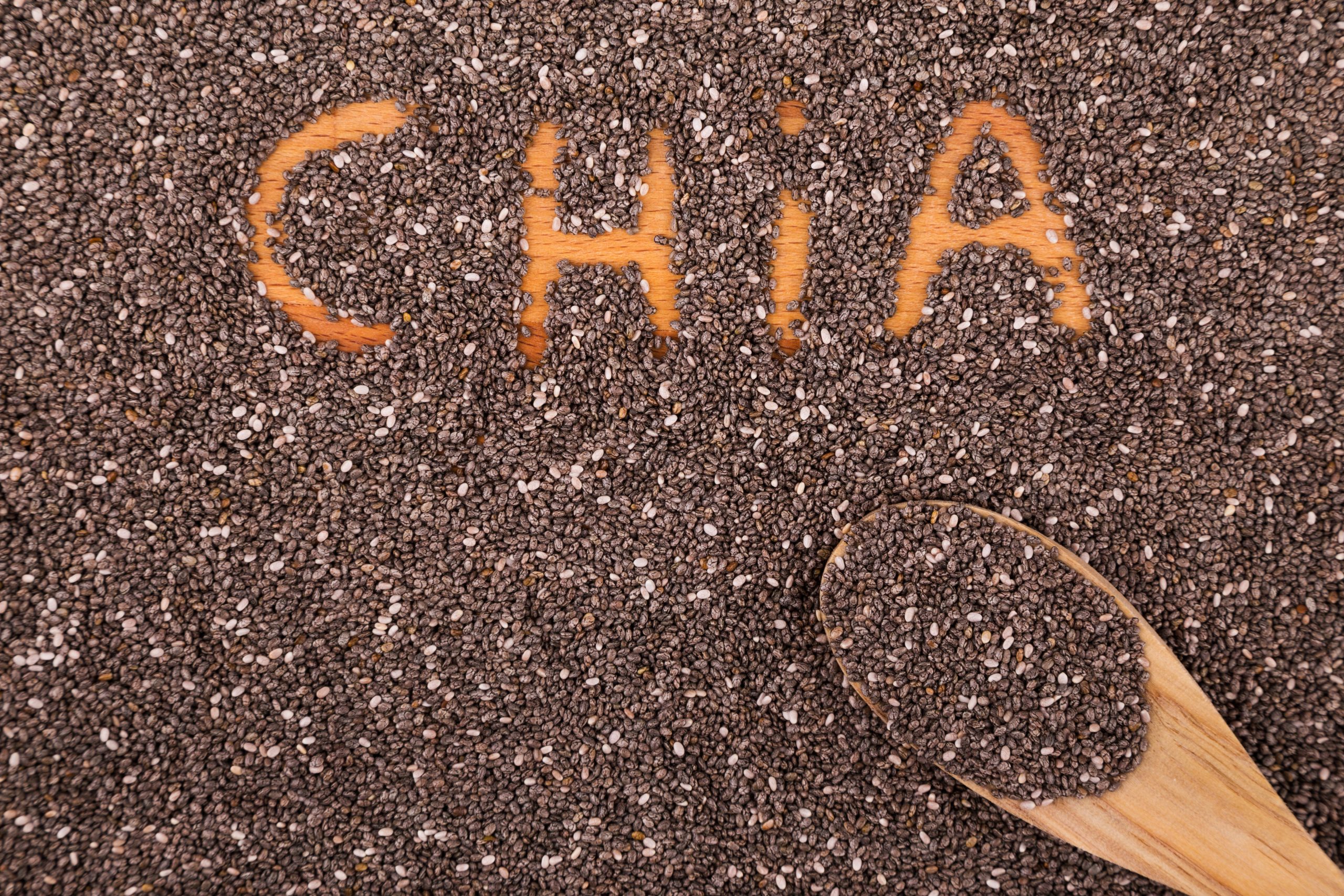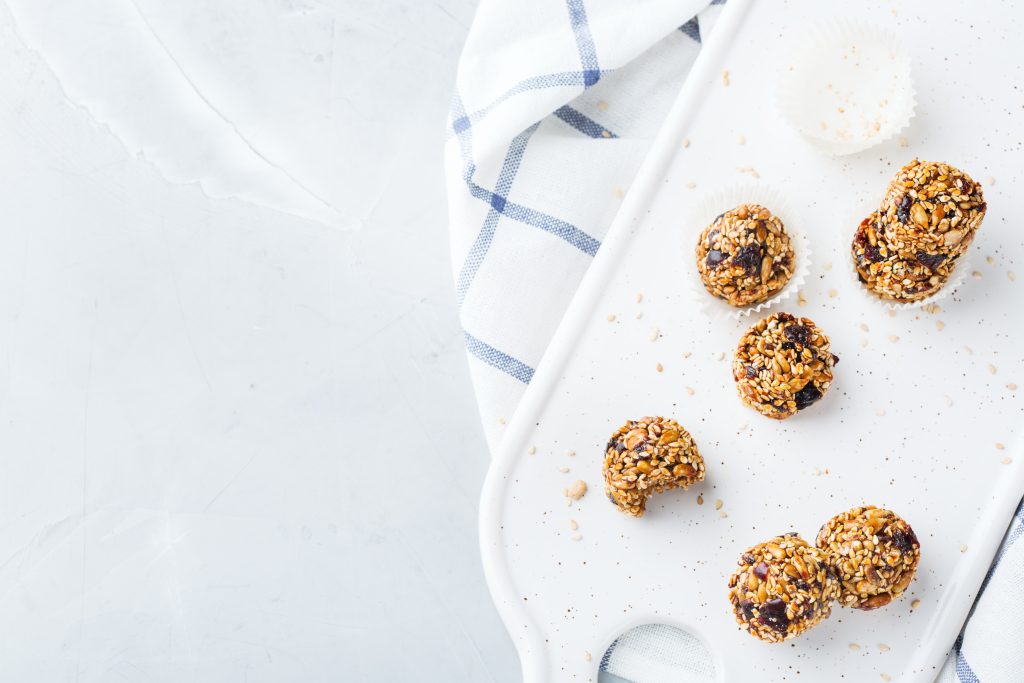Seeds are one of the healthiest, whole foods that you can eat regularly to support a healthy body as they are packed full of vitamins, essential oils, and proteins. They come in all shapes, colours and sizes and each seed has different health benefits for the human body.
Let’s explore the top ten healthiest seeds on the planet that you can eat on a regular basis examining the key benefits of each seed and some interesting ways to get them into your diet.
Black seeds
Black seeds come from the nigella sativa plant and are known as one of the most powerful super foods in the world. Used as far back as ancient Egypt, these seeds are still used today in Indian, Middle Eastern and North African cooking. What’s unique about the seeds is that they contain a high amount of antioxidants such as thymoquinone which protects the body against cellular damage. Consuming these seeds or black seed oil has been shown to lower the risk of heart disease, cancer, kidney disease and many other health problems. Eating two to three teaspoons per day can help to lower inflammation throughout the body, ease pain, swelling and tenderness or you can take one teaspoon of black seed oil.
Chia seeds
Originally grown in Central America, cultivated all over the world and are packed full of soluble fiber, zinc, Omega-3’s, B vitamins, trace minerals and protein. They are sometimes known as “runner’s food” as they are often used by athletes to boost energy levels when exercising. The high fiber content improves gut health, and weight loss by helping to control blood sugars and feed the friendly microbes in your digestive system. Chia seeds are also packed full of antioxidants called lignans which can help to slow the aging process, protecting your skin and organs from oxidative damage. Eating just one tablespoon of chia seeds per day can help to lower blood pressure, improve bone strength, support healthy skin, control blood sugars and boost your immune system against infection. Try adding these to your smoothies, stir fries or sprinkle them over your salad.
Chili seeds
When you slice open a chili pepper you’ll find an abundance of seeds. These are actually the spiciest part of the plant and are often used to make curry’s, meat marinades and to add heat to delicious meals. These are some one of the top seeds for improving digestion as they are loaded with capsaicin, the compound that makes them spicy. Capsaicin is also one of the best natural pain relievers and can reduce headaches, sinus infections, joint pain, nerve pain, swelling, indigestion, and arthritis amongst many other problems.
Pumpkin seeds
When it comes to seeds it’s impossible to overlook the power of pumpkin seeds. Packed full of protein, B vitamins and minerals, pumpkin seeds are some of the most nutrient dense of all. Most people throw these away after cutting into a pumpkin during Halloween, but you can also purchase these dried in health food stores. Loaded with zinc and phytosterols, pumpkin seeds help to balance hormones in both women and men and can reduce prostate enlargement in men. The high vitamin E content helps to protect against heart disease while the antioxidants. tryptophan and minerals support better sleep quality, improved bladder control, and anti aging.
Pistachios
Pistachios are often considered to be nuts, but they are seeds that come from the fruit of the pistachio vera tree which harden and split. These seeds are loaded with potassium, magnesium, zinc, phosphorus, vitamins B1 and B6, folate, K1, E and C. Out of all the nuts and seeds, pistachios contain the lowest number of oxalates, lowering the risk of developing kidney stones. To eat these simply remove the shells and consume a small handful of them raw.
Flax seeds
To stay looking young and healthy flax seeds are some of the healthiest foods that you can consume. These are rich in alpha linolenic acid, an essential fat that’s involved with making membranes around your cells. Getting more of these into your diet helps to prevent rough, dry, and wrinkly skin with age. Flax seeds also help to support a healthy heart and cardiovascular system by lowering inflammation. To get the most benefits grind them with a coffee grinder to help your body absorb the essential fats within them.
Hemp seeds
Like flax seeds, hemp seeds are also a fantastic source of protein containing 20 amino acids including the nine essential amino acids are bodies used to build muscles, blood cells, and hormones. Eating hemp seeds has been shown to reduce problems from autoimmune diseases like arthritis, celiac disease, Graves’ disease, and type 2 diabetes. Eat one to two tablespoons per day for a super health boost.
Sesame seeds
Sesame seeds are one of the oldest crops of mankind and were farmed at least 5500 years ago in India. These are also nutritional powerhouses loaded with calcium, copper, manganese, magnesium, iron phosphorus, B Vitamins, linolenic acid, and zinc. Eating these also supplies your body with sesamin and sesamolin, two substances that have been shown to regulate cholesterol levels and control your blood pressure. Sesame seeds are also well known for improving liver function, helping to detoxify harmful chemicals from your body and making antioxidants. Sprinkle sesame seeds over your salads, use them to make tahini or simply eat a handful each day.
Sunflower seeds
Eating sunflower seeds on a regular basis helps to boost vitamin E levels in the body, the antioxidant that protects your heart, skin, and blood vessels. They’re also loaded with phytosterols which help to keep your cholesterol levels in check and fight against certain types of cancer like prostate or breast cancer. Make sure that you always purchase organic seeds as sometimes they can contain pesticides that are harmful to the body.
Cumin seeds
Not to be confused with black seeds, cumin seeds are often used as a tasty spice in Indian cuisine. They are actually the most popular spice in the world and loaded with compounds that kill harmful bacteria, microbes and pathogens before they can infect your body. In fact, cumin is often added to sausages to act as a natural preservative. The best way to use cumin is by making a homemade Curry or a stew. You can also steep the seeds in water to make a herbal tea or use it in a spice rub for grilled chicken or fish.
One problem with seeds is that they contain phytic acid. This is known as an antinutrient because it can block the absorption of certain minerals into the body. When you eat foods high in phytic acid, minerals like calcium, magnesium, iron, and zinc are not digested properly and they are expelled through your waste. To overcome this problem there’s a very simple hack that you can use involving sprouting your seeds. Simply add a mixture of the seeds you want to eat into a jar and cover with cold water. Let them soak for 12 hours and then drain the water from the jar. Then simply rinse the seeds in water and drain them again twice per day for three to five days and the seeds will grow little sprouts. This removes the phytic acid from the seeds and makes the nutrients more bioavailable to improve your health.
https://www.ncbi.nlm.nih.gov/pmc/articles/PMC8510241/
https://www.life.ca/naturallife/1210/soaking-sprouting-seeds-nuts-grains.htm



